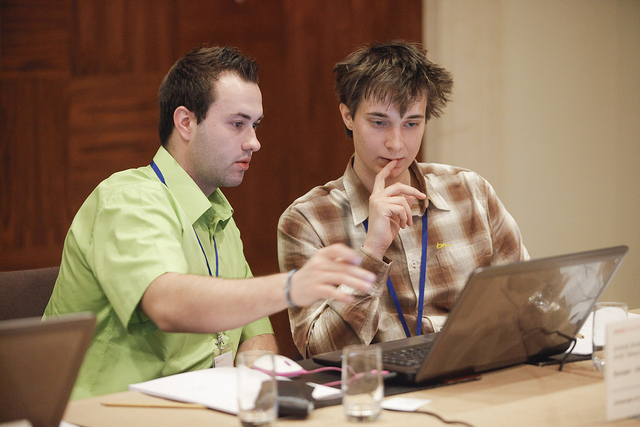To the wise, life is a problem; to the fool, a solution. – Marcus Aurelius

Problems, or challenges, come in all forms. This looks like a mental challenge. What kind do you prefer?
What does that mean?
To me, and my understanding of Stoicism, a closer translation of problem might well be puzzle or challenge. Stoics take the world as it is, and try to deal with it with the minimum fuss.
Life, therefore, is a challenge, a puzzle, a problem to be solved in a simple, logical, and (hopefully) effortless manner. To the fool, it simply is, and not in need of a solution.
While that kind of laid back lifestyle has its appeal, there are times when it is not a sufficient method for living. Being able to recognize that it’s time to deal with a problem is part of being wise.
Taken together, we can lead a very full and fulfilling life. Knowing when to take it easy and when to focus on solutions to what life has placed before us is part of living and becoming wise.
Why is having a problem important?
To me, having a problem means I have to grow or change or otherwise leave my comfort zone to solve it. If I don’t have to do anything new, is it really a problem? I reserve that word for the truly difficult things. The trivial or rote difficulties are simply handled in the usual manner. Not really a problem at all.
At one point, getting food in our mouths was a problem. Our parents helped with that. Eventually, we learned to solve that problem by finding ways to get things in our own mouths. Then we learned how to find the food to put in our mouths. Then our parents moved the cookie jar to a safer place. We are, as a species, problem solvers.
My point is we are wired to find solutions. Some prefer elegant solutions, while others go for optimization based on least effort required to solve. It all depends on the person and the significance given the problem at hand. But having problems is part of life. Every one we solve only exposes us to the next layer of problems.
Once we figure out how to stuff a cookie in our mouth, we have to figure out from where the cookies come. When our parents move that cookie jar, we have to find their new location, and figure out how to get to where the cookies now reside. Like I said, each solution holds a new problem. Dread them or love them, they are there.
Where can I apply this in my life?
Growth and development, as a person, is very important to me, and problems, challenges and puzzles are the things which help me grow. Our attitudes towards such difficulties often define how we respond to them. If we welcome them, they come to us as our friends. If we dread and curse them, they come to us as our enemies.
Some difficulties are easier to welcome than others. It is largely a matter of our mind-set and attitude that determines our reaction to the situation. I imagine you’ve seen times when someone was fairly calm in a situation which would have seemed too crazy for you, and other times when someone lost it in a fairly normal situation.
And that is part of how one deals with challenges; what is normal for you? I would imagine someone used to dealing with emergencies (first responders, etc) would have an easier time dealing with an otherwise crazy accident scene. But how well would they deal with a room full of toddlers at cookie time? Yet (usually) the people at the daycare handle it well.
By taking on difficult times as challenges, we learn, we grow, we become better and more rounded people. To me, that is a wise and prudent course of action. It is also my belief that the quote follows that same path. If we can face problems and overcome them, we become wise. But there is little wisdom to be gained by ignoring them.
That said, not every challenge in life has to be solved. Some bumps in the road you just roll over and take the bounce it provides. Not every single bump has to be removed or made smooth, so there is some wisdom in recognizing when to solve a problem and when to ignore it. Just as not all who wander are lost, not all who rest are lazy.
We all have some kind of problem we enjoy solving. Whether it’s reproducing a recipe for a food we like or beating a boss level in our favorite video game, there is always something. Personally, I love bending computers to my will, to get them to do exactly what I want, when I want. But I also enjoy learning new things and figuring out how they work.
What sort of challenges or issues do you enjoy working or experiencing? Remember, you might not enjoy the process, but what I’m looking for is, when you look back on it, you view the solution with pride. Surviving your teenagers first tantrum might be one. Successfully getting them out of the house and on their own might be another less than fun process, but a problem viewed with pride after accomplishment.
Today you will be faced with bumps in the road. Do they need to be solved, or can you roll over them? What can you learn from that choice, and what benefit would come from solving the problem instead of avoiding it? If you can use these questions to analyze your life, how can you avoid wisdom?
From: Twitter, @OprahsQuotes
confirmed (poorly) at : here and at : here. In each case it is used, but no further information on citation is given
photo by worldsteel






